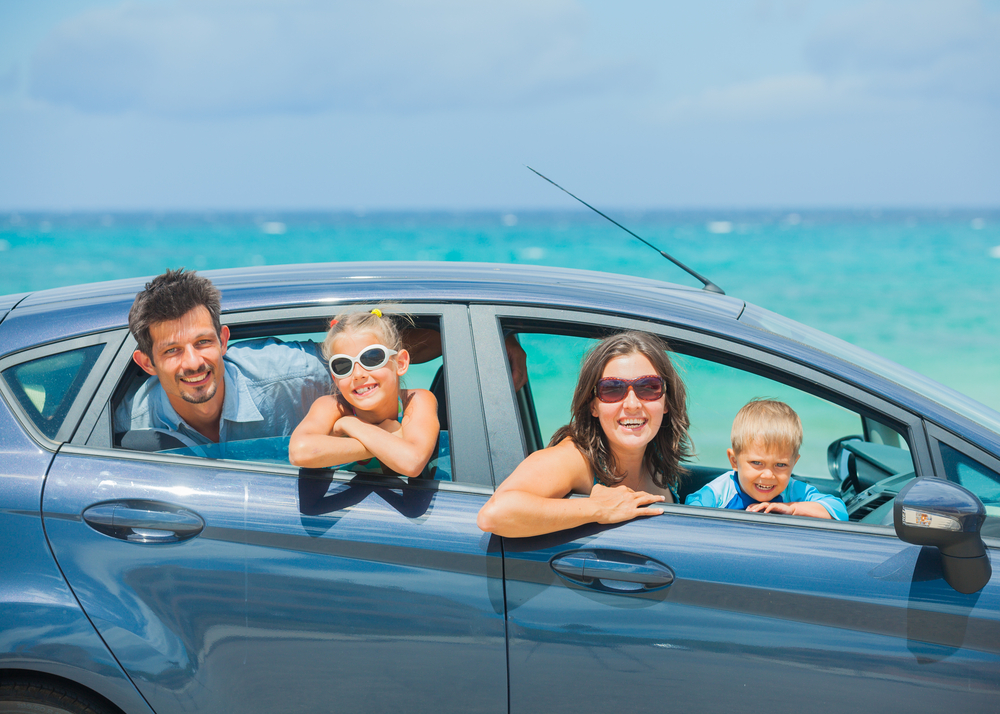
Nearly 10 billion staycation miles set to be driven
New research from Churchill Motor Insurance reveals the factors which make for the most stress-free driving experience during staycations this year. With some 29 million people (55 per cent) planning a staycation this year, having as least stressful a journey as possible will be a priority for millions of families. As motorists predict their holiday will be around a 236-mile round trip, this means 9.9billion staycation miles will be driven this year.
The South West is the most popular destination, with one in seven (15 per cent) planning to visit the area this year. Completing the top five UK holiday destinations are Scotland (10 per cent), South East England (nine per cent), the North West and Wales (both eight per cent).
Not only are families often looking for peaceful and relaxing accommodation, many find the different roads in popular holiday destinations less stressful than at home. Overall, drivers find themselves most chilled out on forest roads (32 per cent), coastal roads (31 per cent) and country roads (27 per cent).
Drivers hoping for a relaxing journey should consider heading to Wales this year, which has the highest proportion of rural roads in the UK. There are 23,000 rural miles in Wales, accounting for 78 per cent of all roads in the principality. Wales is followed by the South West (76 per cent), Scotland (70 per cent) and the East of England (69 per cent) as the regions with the most picturesque roads.
London, meanwhile, has the fewest rural roads, with just 292 miles (three per cent) of roads in the capital not in urban areas. The North West is the region with the next lowest proportion of rural roads, but still has 34 times more miles of rural roads than London.
Heading towards rural and coastal areas doesn’t just relax people, it also reduces the risk of accidents. More than two thirds (67 per cent) of accidents occur on urban roads, which is perhaps why London, where 96 per cent of roads are urban, has the highest volume of road traffic accidents (25,300), while Wales, with just 22 per cent urban roads, has among the lowest (4,300).
The top external factors which make driving less stressful for motorists are good weather and driving conditions (65 per cent) no traffic (62 per cent) and a scenic view (47 per cent). Yet, while they may not find the conditions as stressful, drivers need to be on their guard in all conditions, as the vast majority of road traffic collisions occur in daylight (71 per cent), with no adverse weather conditions (79 per cent) and on dry roads (70 per cent). Nearly three quarters (71 per cent) of accidents involve more than one vehicle.
Completing the top factors for a stress-free driving experience are knowing the car is fully prepared for the drive (42 per cent) and the right music (40 per cent). Just one in eight motorists would say driving with family (13 per cent) or friends (12 per cent) makes for a relaxing trip.
Nicholas Mantel, Head of Motor Insurance for Churchill, said: “Going on holiday is supposed to be relaxing but often the driving can be stressful, especially when travelling a long distance with a full car. If families are yet to book a holiday, our research shows certain areas of the country may be worth investigating for those who enjoy a scenic road trip as part of their staycation.
“If the thought of heading to the road fills you with dread, taking simple steps like making sure the car is in good order, the route is planned and you’re prepared for unwelcome surprises like traffic jams, and can entertain children will help the journey feel more like part of the holiday.”
